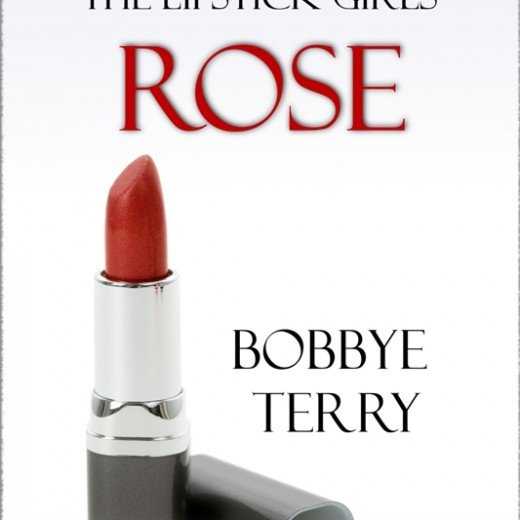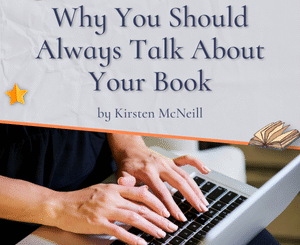Your Book in Five Words or Less: Your Title by Kay Keppler
 Let’s welcome back monthly columnist, editor, and novelist, Kay Keppler, as she shares with us “Your Book in Five Words or Less: Your Title!” Enjoy!
Let’s welcome back monthly columnist, editor, and novelist, Kay Keppler, as she shares with us “Your Book in Five Words or Less: Your Title!” Enjoy!
***
You’ve finished your book. After all the hard work, you need a great title.
But writing a title is a lot different from writing a full-length novel or even a short story. Writing a title takes creativity, but it isn’t storytelling—it’s marketing. Your potential readers see a title before they see anything in chapter one, and it has to hook them. Companies spend fortunes on finding the right name for new products—names that will resonate with consumers—and so should you.
A good title should be:
- Attention grabbing. You can be provocative, controversial, exciting, clever, romantic, or mysterious. But try to choose a title that makes people stop and pay attention to it.
- Memorable. If your mother recommends your book to her bridge club and they can’t remember the name of it when they get home, they can’t buy it.
- An informative title is much more important for nonfiction than for fiction. If you mention your title to someone and they ask you what the book is about, you need a better title. Be clever, but clear.
- Easy to say. You want to build word of mouth? Don’t use jargon or professional lingo on the cover.
Subtitles: Yes, Absolutely
Nonfiction absolutely needs a subtitle to put your short, snappy, attention-grabbing, memorable, informative, and clear title into context. For example:
Our Sister Republics: The United States in an Age of American Revolutions
Dust & Grooves: Adventures in Record Collecting
Cook Korean! A Comic Book with Recipes
However, even in fiction, a tagline or other information can give readers a more complete understanding of what your book is about. You’ve often seen “New York Times best-selling author” across the cover, which suggests that the writer is very accomplished. Perhaps the cover contains series information like “A Southern vampire novel.” The cover might have a review quote, such as “Haunting, compelling and brilliant—The Times” on Donna Tartt’s The Secret History. Or it might have a direct tagline, such as “A gripping serial killer thriller” on Robert Bryndza’s The Girl in the Ice.
Getting to the Title that Sells Your Book
To write a great book title, approach its creation in a different way than you thought about your manuscript. Try these techniques.
Understand Your Book
Find the nugget. Are you marketing a nonfiction series—say cookbooks, diet books, or how-to books? Brand that series. Think of the success of the “Dummies” line—from Writing a Romance Novel for Dummies to Welding for Dummies. That’s a franchise that never quits.
If you’re writing a standalone book, make that title: Stand. Out. Alone. No one will forget Dave Eggers’s A Heartbreaking Work of Staggering Genius in a hurry.
If you’re writing fiction, make sure that the title conveys enough information and mood that readers are certain that they’ll be getting a scare, a puzzle, or a warm fuzzy (The Bazaar of Bad Dreams, Storm Prey, Scandal and Scoundrel). Communicate that emotion. Or go with a title that emerges directly from the book’s subject, such as the protagonist’s place in history (The Last of the Mohicans) or unique personality or attitude (Bridget Jones’s Diary), or even the antagonist (Hannibal, Jaws), a McGuffin (The Da Vinci Code, The Purloined Letter), or the theme (Pride and Prejudice).
Then:
Brainstorm Potential Titles
Spend a few days writing down every title idea you can think of. Incorporate clever or noteworthy phrases from the book. Keep the main title as short as possible and add a clarifying subtitle or tagline.
Use relevant keywords to improve search ability. If you’re writing nonfiction, promise a benefit (“How to…) or offer a solution (“10 Ways to…”). Use metaphors or symbols associated with the themes in your book.
To help your audience remember your title, use alliteration, alter a popular phrase (The War of Art), or rework a trope (Confessions of … or The End of …). To stimulate your creativity, try a random title generator, or even an advertising copywriters’ manual!
Then:
Google Your Ideas
You don’t want to test anything that’s already out there. Writers can’t copyright titles, so technically you could publish your book about how to build wren houses as The Adventures of Moby Dick. But your readers will be furious.
Then:
Test Your Favorites
Start with your best titles and subtitles, at least 10–20 of them. Test the titles and subtitles in different iterations with Google AdWords, Survey Monkey, Pickfu, or Google Survey. Just don’t test your friends and relations or ask them about what works, because subjective opinions aren’t much use in the marketplace.
Try to test with people who enjoyed your previous work, people who don’t know your work but like to read similar work by other authors, and finally, people who don’t read much but enjoy movies or other entertainment that has something in common with your work. That’s the way to find out if a broad audience will both find your book and pick it up. Testing isn’t terribly expensive, and the results can be more than worth it.
Then:
Pay Attention to the Results
Listen to what your readers tell you. But make sure your data is unbiased. That is—again—don’t run the marketing test on your friends and relations.
Release Party!
Writing a title that conveys solid information about your book’s contents in a catchy and memorable way is difficult. However, getting a title that works hard to sell your book to its intended audience can have big payoffs down the road. Good luck!
***
ABOUT THE AUTHOR
Kay Keppler is an author Zero Gravity Outcasts, Betting on Hope, Gargoyle: Three Enchanting Romance Novellas, and editor of fiction and nonfiction –Angel’s Kiss and Outsource It! She lives in northern California. Contact her here at Writer’s Fun Zone in the comments below, or at kaykeppler@yahoo.com to ask questions, suggest topics, or if you prefer, complain.
is an author Zero Gravity Outcasts, Betting on Hope, Gargoyle: Three Enchanting Romance Novellas, and editor of fiction and nonfiction –Angel’s Kiss and Outsource It! She lives in northern California. Contact her here at Writer’s Fun Zone in the comments below, or at kaykeppler@yahoo.com to ask questions, suggest topics, or if you prefer, complain.







Thanks for the thorough tips. Though I think I have decided on a title that works, I’m open to rethinking it.
Sometimes a title just jumps out at you, and you know it’s exactly right. But when you’re not sure—or nothing resonates—then it might be time to try the brainstorm-and-test approach. Congratulations on having a title that works for you!